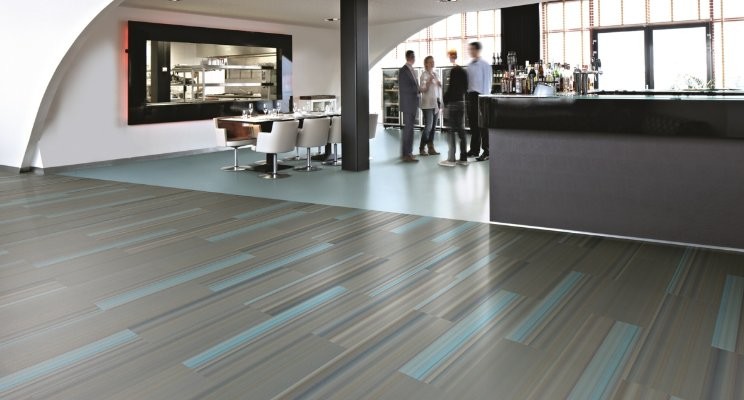
Flooring is a crucial element in any space, and innovations in contract flooring solutions continue to shape the way we design, build, and experience environments. From sustainable materials to advanced technologies, the flooring industry is evolving to meet the diverse needs of various sectors. Here are some key innovations driving the future of contract flooring:
1. Sustainable Materials:
In response to growing environmental concerns, sustainable flooring materials have gained prominence. Manufacturers are increasingly using recycled and eco-friendly materials in the production of flooring products. Bamboo, reclaimed wood, and recycled carpet tiles are just a few examples of sustainable options that offer durability without compromising environmental responsibility.
2. Modular Flooring Systems:
Modular flooring systems are revolutionizing the way commercial spaces approach flooring. These systems consist of individual tiles or planks that can be easily replaced, allowing for quick and cost-effective updates. This versatility is particularly advantageous in high-traffic areas where wear and tear are common.
3. Luxury Vinyl Tile (LVT):
Luxury Vinyl Tile has emerged as a popular choice for commercial spaces due to its versatility, durability, and aesthetic appeal. LVT convincingly mimics the look of natural materials like wood and stone while offering easy maintenance and enhanced resistance to water and stains.
4. Biophilic Design:
Biophilic design, which integrates natural elements into interior spaces, has influenced flooring choices. Flooring materials that replicate the look and feel of natural elements, such as wood and stone, contribute to a more inviting and calming atmosphere, promoting well-being in commercial environments.
5. Smart Flooring:
Advancements in technology have given rise to smart flooring solutions. These can include integrated sensors for monitoring foot traffic, temperature, and air quality. Smart flooring contributes to more efficient building management and can enhance the overall user experience in spaces such as offices and retail environments.
6. Acoustic Flooring:
Addressing the issue of noise in commercial spaces, acoustic flooring solutions have gained prominence. These materials are designed to absorb sound, reducing noise levels and creating a more comfortable and productive environment. This is particularly beneficial in open-office settings and educational facilities.
7. Antimicrobial Flooring:
With a heightened awareness of hygiene, antimicrobial flooring solutions have become increasingly important, especially in healthcare and high-traffic public spaces. These flooring materials are designed to inhibit the growth of bacteria, mould, and fungi, contributing to a healthier indoor environment.
8. Customization and Personalization:
Contract flooring now offers greater opportunities for customization and personalization. Whether through unique patterns, colours, or branding elements, businesses can tailor their flooring to align with their brand identity and create a distinct and memorable environment.
9. Easy Installation and Maintenance:
Innovations in installation methods and materials have made flooring projects more efficient. Some flooring solutions are designed for easy installation, reducing downtime and labour costs. Additionally, low-maintenance materials make it simpler for businesses to keep their spaces looking clean and well-maintained.
10. Recyclable Flooring:
The push for circular economies has led to the development of recyclable flooring materials. These products are designed with end-of-life considerations, allowing for easier recycling or repurposing, further contributing to sustainable practices in the construction industry.
As the demand for versatile, sustainable, and technologically advanced flooring solutions continues to grow, the flooring industry will likely see even more exciting innovations. These advancements not only enhance the functionality and aesthetics of spaces but also contribute to creating healthier, more environmentally conscious environments. Whether in offices, healthcare facilities, or retail spaces, the future of contract flooring is undeniably moving forward.

